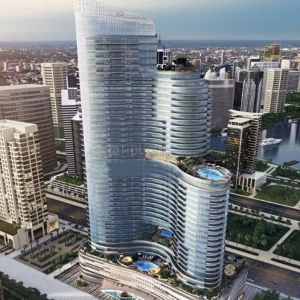Unprecedented Visitor Numbers
Abu Dhabi’s tourism sector has experienced remarkable growth in 2025, marking a significant milestone for the emirate’s travel and hospitality industry. With record-breaking visitor numbers, Abu Dhabi has cemented its position as one of the fastest-growing tourist destinations in the region. The surge in tourist arrivals has been attributed to enhanced infrastructure, strategic marketing campaigns, and a wide range of cultural and entertainment events.
Key Factors Driving Growth
Several factors have contributed to this impressive growth:
1. Major Events and Attractions:
Abu Dhabi successfully hosted several high-profile events in 2025, including international sports tournaments, global business conferences, and cultural festivals. These events drew thousands of visitors from around the world, boosting the local economy. Notable events such as the Abu Dhabi Grand Prix, the Abu Dhabi Film Festival, and the World Future Energy Summit attracted significant international attention. In addition, cultural landmarks like the Louvre Abu Dhabi, Qasr Al Watan, and the Sheikh Zayed Grand Mosque remained top tourist attractions.

2. Improved Connectivity:
Abu Dhabi International Airport saw increased flight connections with key international markets, facilitating easier access for global travelers. The introduction of direct flights to emerging travel hubs like Southeast Asia and Africa played a vital role in attracting tourists from diverse demographics. Enhanced visa policies, including simplified entry processes for multiple nationalities, have further improved accessibility.
The expansion of Etihad Airways’ flight network also played a crucial role in making Abu Dhabi a preferred stopover destination. Improved ground transportation, including expanded bus networks, ride-hailing services, and enhanced taxi infrastructure, ensured that visitors could navigate the city with ease.
3. Expanding Hospitality Sector:
A wave of new luxury hotels and resorts opened throughout Abu Dhabi, offering visitors a variety of premium accommodation options. Iconic developments on Saadiyat Island and Yas Island played a crucial role in attracting high-end travelers. Luxury brands such as St. Regis, Conrad, and Mandarin Oriental introduced exclusive properties that delivered opulent experiences to discerning tourists.
Budget-conscious travelers also benefited from an increasing number of mid-range and boutique hotel options. Family-friendly resorts and beachfront accommodations drew visitors seeking memorable experiences tailored to diverse travel needs.
4. Entertainment and Leisure Expansion:
The rise of entertainment hubs like Warner Bros. World Abu Dhabi, Ferrari World, and Yas Waterworld contributed heavily to the tourism surge. These attractions catered to families, thrill-seekers, and culture enthusiasts alike. The launch of new shopping malls, dining districts, and vibrant nightlife scenes also expanded Abu Dhabi’s appeal as a multifaceted destination.
Impact on the Economy
The record growth in the tourism sector has significantly benefited Abu Dhabi’s economy. Increased visitor spending boosted retail, dining, and entertainment sectors. Hotels reported higher occupancy rates, and various tourist attractions saw a surge in ticket sales and guided tour bookings. The influx of tourists directly contributed to the economic upliftment of local businesses, supporting small enterprises, food vendors, and local artisans.
The tourism boom has also created numerous employment opportunities, particularly in the hospitality and service industries. From tour operators to hotel staff and retail workers, the sector’s expansion has bolstered job creation. The growth in tourism infrastructure has further supported construction activities, creating a ripple effect across multiple sectors.
Sustainable Tourism Efforts
Abu Dhabi’s Department of Culture and Tourism (DCT) has implemented several sustainability initiatives to ensure responsible tourism growth. Eco-friendly accommodations, energy-efficient transportation options, and nature conservation efforts have been key priorities. Iconic eco-resorts, such as those on Sir Bani Yas Island, showcase how Abu Dhabi has blended luxury travel with environmental responsibility.
The city has actively promoted sustainable travel practices by partnering with global organizations focused on eco-tourism. These initiatives include waste reduction programs, low-energy construction practices, and supporting local wildlife conservation efforts. Marine conservation programs have become a significant focus, ensuring the preservation of Abu Dhabi’s pristine coastal environment.
Future Growth and Innovations
Looking ahead, Abu Dhabi plans to introduce additional cultural experiences, expand its heritage tourism offerings, and further develop marine and adventure tourism experiences. The emirate’s investment in smart city technology is set to redefine visitor experiences, with digital services improving access to tourist information, interactive maps, and seamless payment solutions. Future developments like the Guggenheim Abu Dhabi and Zayed National Museum are poised to enhance Abu Dhabi’s reputation as a cultural hub.
In 2025, Abu Dhabi also announced plans to host new wellness retreats, emphasizing relaxation, rejuvenation, and mental well-being. Adventure tourism initiatives, including desert safaris, dune bashing, and guided eco-tours, are expected to attract thrill-seekers from around the world.
Cultural Integration and Heritage Promotion
To maintain its unique identity, Abu Dhabi has heavily invested in promoting its rich cultural heritage. Heritage villages, Emirati art exhibitions, and immersive historical tours have provided tourists with deeper insights into the emirate’s traditions. The integration of cultural narratives into modern attractions has enriched visitors’ understanding of Abu Dhabi’s historical significance.
Local cuisine has also played a pivotal role in elevating the city’s cultural influence. Authentic Emirati restaurants, fusion cuisine hubs, and street food festivals have enriched Abu Dhabi’s culinary landscape, providing visitors with memorable dining experiences.
Conclusion
With strategic planning, improved infrastructure, and a focus on sustainability, Abu Dhabi’s tourism sector is poised for continued success. The record growth seen in 2025 underscores the emirate’s appeal as a world-class destination, blending rich cultural heritage with modern luxury and entertainment. As Abu Dhabi continues to innovate and expand its tourism offerings, it is set to maintain its position as a leading hub for global travelers.
Do follow Uae stories for more Updates
How AI is Transforming Healthcare in the UAE: The Future is Here!













